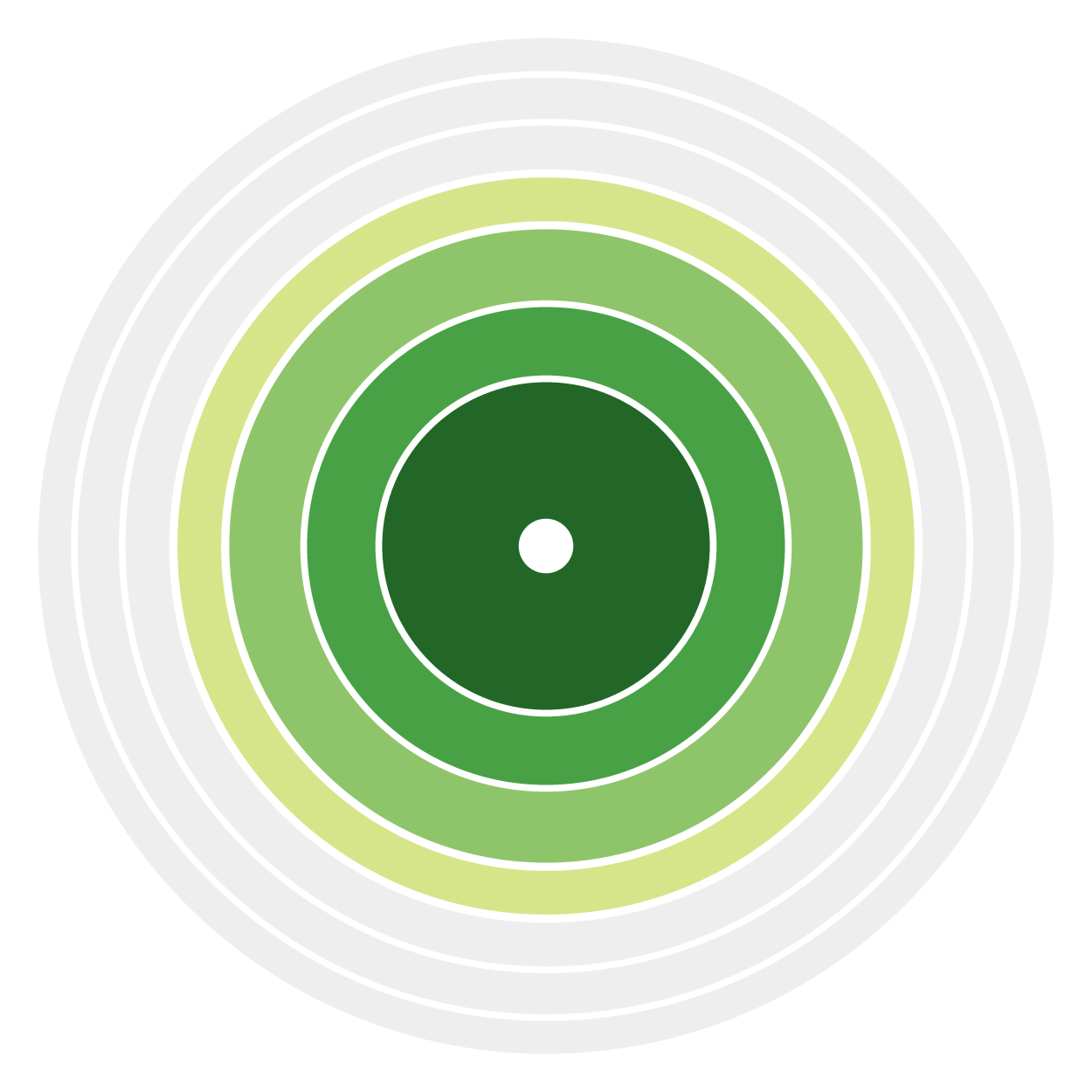Japanese vocabulary in the iKnow! Core 6000 list
iKnow! Japanese Core 6000 Vocab 201-300
QUICK STUDY
FLASHCARDS
DOWNLOAD
ichidan verb, transitive verb, intransitive verb
to close (e.g. book, eyes, meeting, etc.); to shut(click the word for useful expressions, examples and links)
noun
1. (husked grains of) rice2. 88 years old (米 is composed of 八十八; this meaning is restricted to reading よね)
(click the word to view an additional 2 readings and 2 forms, examples and links)
suffix, 'ru' godan verb, transitive verb
1. to cut; to cut through; to perform (surgery)2. to sever (connections, ties) (see also: 縁を切る)
(click the word to view an additional 21 meanings, useful expressions, examples and links)
enjoyable; fun
(click the word to view an additional 3 forms, examples and links)
noun
1. back; lower back; waist; hips; lumbar region2. body (of hair, noodle, paper, etc.); resilience; spring (usu. コシ)
(click the word to view an additional 2 forms, examples and links)
adverbial noun (fukushitekimeishi), noun (temporal) (jisoumeishi)
Sunday(click the word to view an additional 3 forms, examples and links)
noun
university student; college student(click the word to view an additional 2 forms, examples and links)
noun
the end(click the word to view an additional 3 forms, useful expressions, examples and links)
noun
1. height; stature2. back; spine (this meaning is restricted to reading せ)
(click the word to view an additional 1 reading, 2 meanings and 3 forms, examples and links)
'u' godan verb, transitive verb
1. to help; to assist; to aid2. to contribute to; to be a factor in
(click the word to view an additional 1 form, examples and links)
ichidan verb, transitive verb
1. to place on (something)2. to give (someone) a ride; to give a lift; to pick up; to help on board (esp. 乗せる)
(click the word to view an additional 7 meanings and 2 forms, examples and links)
sad; sorrowful
(click the word to view an additional 2 forms, examples and links)
'ru' godan verb, intransitive verb
to talk; to chat; to chatter (often written with kana only)(click the word to view an additional 1 form, examples and links)
1. sweet-tasting; sweet; sugary; sugared
2. fragrant (smelling); sweet (music)
(click the word to view an additional 6 meanings, examples and links)
'ru' godan verb, intransitive verb
1. to begin; to start; to commence2. to happen (again); to begin (anew)
(click the word to view an additional 1 meaning, examples and links)
numeric
ten (拾 is used in legal documents)(click the word to view an additional 2 readings and 5 forms, examples and links)
1. fat; thick
2. deep (of a voice)
(click the word to view an additional 2 meanings, examples and links)
adverbial noun (fukushitekimeishi), noun (temporal) (jisoumeishi)
Saturday(click the word to view an additional 3 forms, examples and links)
1. painful; sore
(click the word to view an additional 3 forms, examples and links)
1. perhaps; probably
2. generous; many; much; great
(click the word for examples and links)
noun
watch; clock; timepiece(click the word to view an additional 1 reading and 2 forms, examples and links)
Most common form: 泊る
'ru' godan verb, intransitive verb
1. to stay at (e.g. hotel)2. to be docked; to be berthed; to be moored
(click the word to view an additional 2 forms, examples and links)
Most common form: かける
ichidan verb, transitive verb
1. to hang (e.g. picture); to hoist (e.g. sail); to raise (e.g. flag) (see also: 壁にかける; often written with kana only)2. to sit (see also: 腰を掛ける; often written with kana only)
(click the word to view an additional 22 meanings and 2 forms, useful expressions, examples and links)
'ru' godan verb, intransitive verb
1. to bend; to curve; to warp; to wind; to twist2. to turn (see also: 折れる)
(click the word to view an additional 1 meaning and 2 forms, examples and links)
noun
stomach (polite (teineigo) language)(click the word to view an additional 4 forms, examples and links)
(click the word to view an additional 1 meaning, examples and links)
adverbial noun (fukushitekimeishi), noun (temporal) (jisoumeishi)
Friday(click the word to view an additional 2 forms, examples and links)
Most common form: いる
'ru' godan verb, intransitive verb
to need; to want (often written with kana only)(click the word for examples and links)
Most common form: ない
2. unpossessed; unowned; not had
(click the word to view an additional 4 meanings, examples and links)
1. yellow
2. high-pitched (voice); shrill (see also: 黄色い声)
(click the word to view an additional 3 forms, examples and links)
noun
common cold; cold; influenza; flu; ague(click the word to view an additional 1 reading, examples and links)
tender; kind; gentle; graceful; affectionate; amiable
(click the word for examples and links)
ichidan verb, intransitive verb
1. to clear up; to clear away; to be sunny; to stop raining2. to refresh (e.g. spirits)
(click the word to view an additional 2 meanings and 2 forms, useful expressions, examples and links)
1. dirty; filthy; foul; unclean
2. disordered; messy; untidy; poor (e.g. handwriting)
(click the word to view an additional 3 meanings and 3 forms, examples and links)
Most common form: 茶いろ
noun, 'no' adjective
light brown; tawny(click the word to view an additional 3 forms, examples and links)
Most common form: すく
'ku' godan verb, intransitive verb
1. to become less crowded; to thin out; to get empty2. to be hungry (see also: お腹が空く)
(click the word for examples and links)
Most common form: 登る
'ru' godan verb, intransitive verb
1. to ascend; to go up; to climb2. to ascend (as a natural process, e.g. the sun); to rise (usu. 昇る)
(click the word to view an additional 6 meanings and 4 forms, examples and links)
ichidan verb, transitive verb
to turn on; to switch on; to light up (see also: 付ける; often written with kana only)(click the word to view an additional 1 form, examples and links)
adverbial noun (fukushitekimeishi), noun (temporal) (jisoumeishi)
Monday(click the word to view an additional 3 forms, examples and links)
2. to break into
(click the word to view an additional 4 meanings and 2 forms, examples and links)
adverbial noun (fukushitekimeishi), noun (temporal) (jisoumeishi)
this week(click the word for examples and links)
'ku' godan verb, intransitive verb, transitive verb
1. to open; to undo; to unseal; to unpack2. to bloom; to unfold; to spread out
(click the word to view an additional 13 meanings, examples and links)
noun
1. that (indicating something distant from both speaker and listener (in space, time or psychologically), or something understood without naming it directly) (see also: 何れ, 此れ, 其れ; often written with kana only)2. that person (used to refer to one's equals or inferiors)
(click the word to view an additional 5 meanings and 2 forms, examples and links)
numeric
two (ふ and ふう used mainly when counting aloud. 弐, 貳 and 貮 are used in legal documents.)(click the word to view an additional 3 readings and 5 forms, examples and links)
ichidan verb, transitive verb
1. to tie; to fasten2. to total; to sum (see also: 〆る:しめる)
(click the word to view an additional 4 meanings, examples and links)
1. unappetising; unappetizing; unpleasant (taste, appearance, situation) (often written with kana only)
2. unskillful; unskilful; bungling; clumsy (see also: 拙い)
(click the word to view an additional 2 meanings and 3 forms, examples and links)
'ru' godan verb, intransitive verb
1. to get cloudy; to cloud over; to become overcast2. to cloud up; to fog up; to mist up; to become dim
(click the word to view an additional 2 meanings, examples and links)
'ru' godan verb, intransitive verb
to touch; to feel (often now with を)(click the word for examples and links)
Most common form: ダメ
'na' adjective, noun
1. no good; not serving its purpose; useless; broken (often written with kana only)2. hopeless; wasted; in vain; purposeless (often written with kana only)
(click the word to view an additional 2 meanings and 2 forms, examples and links)
adverbial noun (fukushitekimeishi), noun (temporal) (jisoumeishi)
Thursday(click the word to view an additional 2 forms, examples and links)
noun
1. near; close; beside; vicinity; proximity; besides; while (often written with kana only)2. third person
(click the word to view an additional 3 forms, examples and links)
Most common form: こちら
noun
1. this way (direction close to the speaker or towards the speaker); this direction (see also: 何方, 其方, 彼方; often written with kana only)2. here (place close to the speaker or where the speaker is)
(click the word to view an additional 3 meanings and 3 forms, examples and links)
adverbial noun (fukushitekimeishi), noun (temporal) (jisoumeishi)
Tuesday(click the word to view an additional 2 forms, examples and links)
2. to thirst for; to crave (often as 〜に渇いた)
(click the word for examples and links)
numeric
1. three (参 is used in legal documents)prefix
2. tri-(click the word to view an additional 1 reading and 4 forms, examples and links)
adverbial noun (fukushitekimeishi), noun (temporal) (jisoumeishi)
Wednesday(click the word to view an additional 2 forms, examples and links)
adverbial noun (fukushitekimeishi), noun (temporal) (jisoumeishi)
tonight; this evening(click the word for examples and links)
noun
1. sixth day of the month2. six days
(click the word to view an additional 2 readings and 2 forms, examples and links)
Most common form: 治る
2. to get mended; to be repaired; to be fixed (esp. 直る)
(click the word to view an additional 2 forms, examples and links)
numeric
four (肆 is used in legal documents)(click the word to view an additional 2 readings and 4 forms, examples and links)
noun (temporal) (jisoumeishi)
after this (often written with kana only)(click the word to view an additional 2 forms, examples and links)
ichidan verb, transitive verb
1. to think about; to take into consideration2. to ponder; to reflect; to try to come at a conclusion; to think over (something)
(click the word to view an additional 5 meanings and 3 forms, useful expressions, examples and links)
'ru' godan verb, intransitive verb
1. to turn back (e.g. half-way)2. to return; to go back
(click the word to view an additional 2 meanings, useful expressions, examples and links)
ichidan verb, transitive verb
1. to change; to alter; to transform; to convert; to turn; to vary2. to reform; to revise; to amend
(click the word for examples and links)
adverbial noun (fukushitekimeishi), noun (temporal) (jisoumeishi)
morning(click the word to view an additional 1 reading, examples and links)
'ru' godan verb, intransitive verb
1. to persevere; to persist; to keep at it; to hang on; to hold out; to do one's best2. to insist that; to stick to (one's opinion)
(click the word to view an additional 1 meaning, examples and links)
Kanshudo is your AI Japanese tutor, and your constant companion on the road to mastery of the Japanese language.
To get started learning Japanese, just follow the study recommendations on your Dashboard.
You can use Quick search (accessible using the icon at the top of every page) to look up any Japanese word, kanji or grammar point, as well as to find anything on Kanshudo quickly.
For an overview, take the tour.




